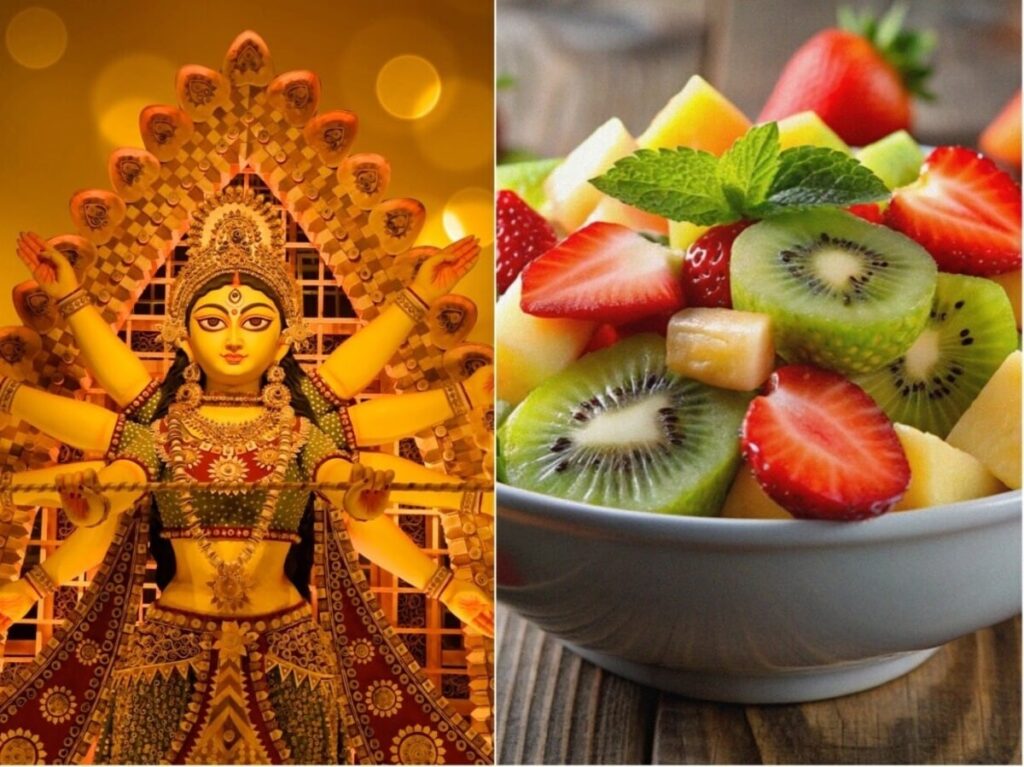Shardiya Navratri is a significant festival celebrated in honor of Goddess Durga. During these nine days, devotees engage in various forms of worship, including fasting and performing rituals. These practices not only foster spiritual growth but also promote health and well-being. However, fasting during Navratri comes with certain rules and guidelines that must be followed to gain the maximum benefits without compromising health. Here, we explore fasting rules during Shardiya Navratri, the common mistakes people make while consuming fruits, and how to maintain a healthy fasting regimen.
Understanding Shardiya Navratri Fasting
Fasting during Navratri is a way to cleanse the mind, body, and soul. It involves abstaining from certain foods and engaging in spiritual activities. Different individuals may observe fasting differently, but the core principles remain the same.
Types of Fasting
- Complete Fast: No food is consumed, only water or juices.
- Fruit Fast: Consumption of fruits and fruit juices is allowed.
- Partial Fast: Certain permitted foods such as milk, sabudana (tapioca pearls), and certain grains are consumed.
Common Mistakes While Fasting
Many devotees overlook crucial practices while consuming fruits and other allowed foods during their fast, which can lead to health issues. Here are some common mistakes to avoid:
| Mistake | Consequences | Recommendation |
|---|---|---|
| Overeating Fruits | Can lead to digestive problems and blood sugar spikes. | Consume fruits in moderation; opt for smaller portions. |
| Ignoring Hydration | Can cause dehydration and fatigue. | Drink plenty of water, coconut water, or herbal teas. |
| Choosing Unhealthy Snacks | May lead to weight gain and poor nutrition. | Focus on nuts, seeds, and roasted grains instead of fried snacks. |
| Skipping Meals | Can lead to increased hunger and overeating later. | Eat smaller, more frequent meals to maintain energy levels. |
Nutritional Focus During Navratri
While fasting, it is essential to ensure that your body receives the necessary nutrients to stay energized. Here are recommended foods that can help maintain nutritional balance:
- Fruits: Apples, bananas, papayas, and pomegranates are great sources of vitamins.
- Nuts and Seeds: Almonds, walnuts, and pumpkin seeds provide healthy fats and proteins.
- Dairy: Milk and yogurt can be excellent sources of calcium and probiotics.
- Whole Grains: If included, sabudana and buckwheat flour can give the required carbohydrates.
Conclusion
Observing fast during Shardiya Navratri is a wonderful way to honor the divine while promoting spiritual and physical well-being. However, it is crucial to follow specific guidelines and avoid common mistakes to ensure that fasting does not negatively impact health. By being mindful of what you eat and how much you consume, you can make the most of this auspicious occasion and emerge healthier and more spiritually aligned. Embrace the spirit of Navratri with a balanced approach to fasting and worship, ensuring that both your body and soul unite in harmony.
